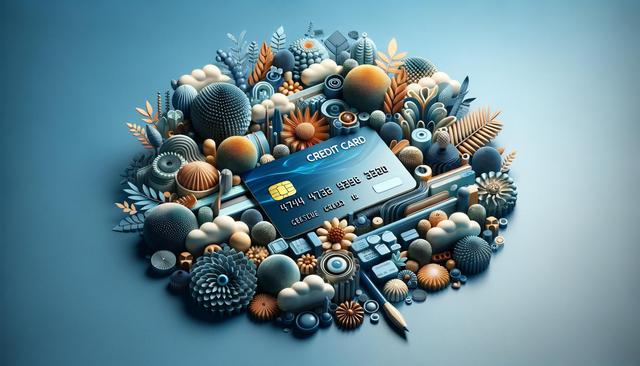Understanding How Credit Cards Work
Credit cards function as a form of short-term borrowing, allowing users to make purchases or access funds up to a certain limit set by their issuer. When a cardholder makes a purchase, the credit card company pays the merchant on their behalf. The cardholder then repays the balance either in full by the due date or over time with interest. This system provides flexibility and convenience, especially for managing day-to-day expenses or handling emergencies without needing immediate cash on hand. Importantly, responsible use of credit cards—such as paying on time and keeping balances low—can help build and maintain a strong credit history, which is critical for financial health.
Every credit card has a set of terms and conditions, such as interest rates (APR), fees, and reward programs. Understanding these terms is key to using a card effectively. For instance, some cards offer an interest-free period if the full balance is paid each month, while others may charge annual fees in exchange for premium benefits. Learning how these factors impact your finances can help you make informed decisions and avoid unnecessary costs.
Choosing the Right Credit Card for Your Needs
With a wide variety of credit cards available, finding the one that aligns with your lifestyle and financial goals is essential. Whether you’re a frequent traveler, a savvy shopper, or someone looking to build credit, there are specific features to look for. Here are a few types of cards commonly available:
- Rewards Cards: Offer points, miles, or cashback on eligible purchases.
- Balance Transfer Cards: Designed to help pay down debt with low or 0% introductory APR on transferred balances.
- Secured Cards: Require a refundable deposit and are ideal for those with limited or poor credit history.
- Student Cards: Tailored for young adults looking to establish credit while managing expenses responsibly.
Finding the credit card that fits you involves evaluating your spending habits, credit score, and what kind of benefits matter most. Comparing features such as reward categories, redemption options, and foreign transaction fees can guide you toward a more personalized and effective choice.
Maximizing the Benefits of Credit Card Rewards
One of the most attractive aspects of using a credit card is the opportunity to earn rewards. Depending on the card, you can accumulate points, miles, or cashback for every dollar spent. These rewards can typically be redeemed for travel, merchandise, statement credits, or even gift cards. To get the most out of a rewards program, consider the following tips:
- Use the card for everyday purchases that you can pay off monthly.
- Take advantage of sign-up bonuses by meeting initial spending requirements.
- Stay informed about rotating categories and bonus offers.
- Redeem rewards strategically for higher-value options like travel or large purchases.
It’s worth noting that these perks are most beneficial when balances are paid in full each month. Carrying a balance can lead to interest charges that outweigh the rewards earned. By using the card responsibly, you can enjoy the added value without incurring extra costs.
Building and Maintaining Good Credit
Using a credit card wisely plays a significant role in developing a strong credit profile. Payment history, credit utilization, length of credit history, and the mix of credit types all influence your credit score. A favorable score can lead to better loan terms, higher credit limits, and improved financial opportunities. Here’s how to stay on track:
- Always pay at least the minimum payment on time to avoid late fees and damage to your credit.
- Keep your credit utilization ratio below 30% of your available credit limit.
- Avoid opening too many new accounts in a short period, which can lower your average account age.
- Regularly review your credit reports to check for errors or signs of identity theft.
By being proactive and informed, you can use your credit card not only as a payment tool but also as a strategic asset for long-term financial growth. Responsible credit behavior reflects positively on your credit history and can open doors to better financial products in the future.
Common Pitfalls to Avoid
While credit cards offer many advantages, they also come with potential pitfalls if not managed carefully. One of the most common issues is accumulating high-interest debt by carrying a balance from month to month. This can quickly become unmanageable, especially if only minimum payments are made. Additionally, missing payments can result in late fees, penalty interest rates, and a negative impact on your credit score.
Another issue is applying for too many credit cards at once, which can lead to multiple hard inquiries on your credit report and may reduce your score temporarily. Overspending to earn rewards is also a common trap; if you spend more than you can afford to pay off, the interest charges may negate any benefits gained.
To avoid these challenges, consider these best practices:
- Track your spending and stay within a budget.
- Set up automatic payments to ensure timely bill payment.
- Limit the number of credit accounts you open within a short period.
- Choose cards that match your financial habits and goals rather than chasing rewards.
By being mindful of these potential setbacks, you can enjoy the convenience and perks of credit cards without compromising your financial well-being.
Conclusion: Making Credit Cards Work for You
Credit cards can be a valuable financial tool when used with care and strategy. From offering purchasing convenience to providing access to rewards and credit-building opportunities, they serve a variety of purposes tailored to different consumer needs. The key lies in finding the credit card that fits you and aligns with your financial habits and goals. By understanding how credit cards work, selecting the right one, maximizing rewards, and avoiding common mistakes, you can use this tool to your advantage and support long-term financial health.




Leave a Reply